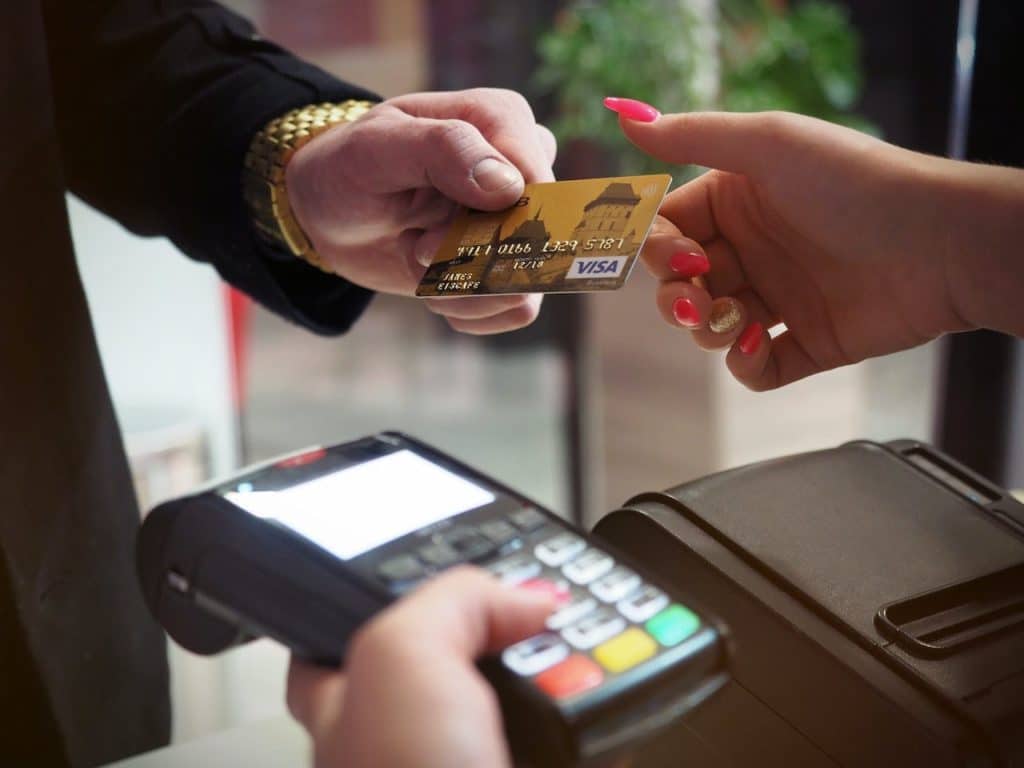The financial wellbeing of any entity is the cornerstone of its endurance and competitive edge in the bustling market landscape. A business debit card emerges as an indispensable financial conduit for modern enterprises, granting access to funds with immediacy and convenience. However, the essence of these instruments lies in their exclusive use for business transactions, distinguishing them starkly from personal spending methods. This discourse aims to unpack the ramifications of conflating personal and business expenditures using such debit cards. It underlines the legal, ethical, and practical quagmires that entangle unwary users and elucidates strategies for maintaining a clear demarcation between personal and business financial affairs. The intent is to charter a course for meticulous financial governance that ensures clarity, compliance, and transparency in business operations.
Understanding the Nature of a Business Debit Card
Definition and Features of Business Debit Card
Venturing into the domain of business debit cards reveals a tool designed to echo the financial stature and operational needs of a business. Issued by banking institutions, these cards act as a direct gateway to a company’s financial reservoir, facilitating transactions that are instantly reflected in the business’s fiscal records. The distinct characteristics of business debit cards set them apart, with enhancements tailored to corporate utility — including amplified spending thresholds, intricate transaction tracking for judicious financial management, and occasionally, incentives like cashback or reward points that sweeten the deal for prudent fiscal undertakings.
Difference Between Business Debit Cards and Personal Debit Cards
Business debit cards and personal debit cards, although parallel in their basic function of providing direct access to funds, diverge significantly in their application and auxiliary benefits. Business cards are structured to withstand the hefty transactional demands of corporate endeavors, offering substantial spending limits and exhaustive record-keeping capabilities that align with the rigors of financial audits and strategic expense monitoring. They often come with supplementary features such as the provision of subsidiary cards for employees, where spending limits can be tailored and monitored, further embedding the card’s role as a facilitator of controlled and accountable corporate spending.

Legal Implications and Restrictions of Using a Business Debit Card for Personal Expenses
The segregation of personal and corporate finances is anchored not only in good governance but is also a mandate reinforced by legal stipulations. The misuse of business debit cards for personal indulgences blurs the boundaries of professional ethics and can be construed as an appropriation of company funds for individual benefit. Such actions stray into the territory of legal infractions, exposing the business and its proprietors to the risk of stringent legal consequences.
Consequences of Mixed Expenses
The perils of intertwining personal expenses with business finances extend beyond the scope of legality. It breeds a landscape of fiscal ambiguity, rendering the financial records opaque and leading to potential complications in accounting processes. The integrity of the business’s financial statements is compromised, posing a red flag for investors, stakeholders, and financial auditors — a situation that any prudent business would seek to avoid.
Understanding Piercing the Corporate Veil
The legal doctrine of ‘piercing the corporate veil’ stands as a cautionary principle for those entwining their personal expenditures with business accounts. This concept allows for the judicial system to disregard the separate legal entity of the corporation, thereby holding directors or shareholders personally accountable for the entity’s liabilities. Such intermingling of finances can trigger this dire legal consequence, stripping away the protective layer that normally shields personal assets from corporate liabilities. The ramifications are significant, implying that the business’s financial indiscipline could inadvertently extend its shadow over the personal holdings of those at the helm, a scenario that underscores the criticality of adhering to stringent financial demarcation.
Ethical Considerations in Using Business Debit for Groceries
Delineating Personal and Business Expenses
Understanding the ethical ramifications of mingling personal and business expenses is crucial in maintaining professional integrity. When personal expenses are charged to a business account, it may not only seem unethical but could also hint at poor financial discipline. This practice might create a perception of irresponsibility and unreliability among stakeholders, potentially damaging the business’s reputation. Ethically, it’s important to maintain a clear distinction between personal and business expenditures to uphold the principles of trustworthiness and ethical business conduct.
Ethics around Blurry Lines of Usage
The ethical necessity of clearly delineating personal and business expenses cannot be overstated. Blurring these lines is not only a questionable financial practice but also raises concerns about the integrity of the business. It’s a matter of accountability and respect for the business’s resources. Adhering to strict ethical standards in financial matters reflects a commitment to transparency and responsibility, values that are fundamental to any reputable business.
Impact on Trust and Transparency in Business
Trust and transparency are key to building and maintaining healthy business relationships. The misuse of business finances for personal expenses can severely damage this trust. Such practices suggest a lack of respect for the business’s financial integrity, potentially leading to strained relationships with shareholders, employees, and other stakeholders. Ensuring that business finances are used exclusively for their intended purpose is vital in sustaining confidence and reliability in the business world.
Implications for Tax and Financial Record Keeping
The Role of Proper Record Keeping for Businesses
Accurate and meticulous financial record-keeping is a pillar of sound business management. It enables efficient budget management, accurate tracking of expenses, and the preparation of reliable financial statements. Additionally, it’s critical for compliance with tax obligations. Accurate records ensure that businesses remain transparent and accountable, crucial for long-term sustainability.
Possible Impacts on Tax Deductions
The use of a business debit card for personal expenses can have serious implications for tax reporting. Since business expenses are generally deductible but personal expenses are not, mixing the two could result in inaccurate tax filings. This can invite scrutiny from tax authorities, leading to possible allegations of fraud or financial mismanagement. Hence, maintaining separate records for personal and business expenses is not just a matter of good practice but also a safeguard against legal complications.
Effect on Audit and Financial Reports
For auditors, clarity and precision in financial records are non-negotiable. Any ambiguity, such as mixed personal and business expenses, can complicate the audit process, potentially leading to a more rigorous examination or even negative audit findings. Ensuring clean and distinct financial records is therefore essential for a smooth audit process and to uphold the integrity of financial reporting.

Ways to Correctly Separate Personal and Business Expenses
Importance of Keeping Separate Accounts
The fundamental step in segregating personal and business expenses is to maintain distinct accounts for each. This separation simplifies financial management and is a clear indicator of professional financial practices. Separate accounts facilitate easier tracking and categorization of expenses, which is essential for accurate record-keeping and financial analysis.
Tips for Proper Expense Management
Effective expense management requires diligent practices such as regular review and categorization of expenses, and prompt documentation. Regularly monitoring and categorizing expenses can prevent accidental or inappropriate usage of business funds for personal needs. Timely record-keeping ensures that all transactions are accounted for correctly, thus maintaining a clear financial trail.
The Role of Financial Advisors in Managing Business Expenses
Financial advisors play a crucial role in guiding businesses on best practices for managing expenses. Their expertise in categorizing, tracking, and systematically managing financial transactions is invaluable. They can provide tailored advice based on the business’s specific needs, ensuring financial practices align with legal requirements and ethical standards. Their guidance is instrumental in establishing a solid foundation for robust financial management.

Alternative Solutions for Emergency Personal Funding
Utilizing Personal Savings
When faced with personal financial challenges, one of the most straightforward solutions is to tap into personal savings. Such funds are already set aside and can be accessed without any complications, legal repercussions, or interest implications.
Applying for Personal Loans
Another viable avenue to explore during personal financial crunches is personal loans. These loans, granted based on an individual’s creditworthiness and income, can be a lifeline. They come with a structured repayment plan and are legally sound, ensuring that no lines between personal and business finances are blurred.
Consideration for Credit Cards or Overdraft Facilities
In situations where immediate financial relief is needed, individuals might contemplate using personal credit cards or activating overdraft facilities on their bank accounts. However, these should be approached with caution. The interest rates on these facilities are typically higher than standard loans. While they can provide instant relief, they can also lead to spiraling debts if not managed prudently.
In wrapping up, it’s evident that a business debit card, designed as a potent tool to manage business finances, must be used judiciously and exclusively for business-related transactions. By sticking to this principle, businesses not only uphold their ethical and financial integrity but also shield themselves from potential legal and tax complications. It’s a matter of discipline, foresight, and understanding the broader implications of financial decisions.
